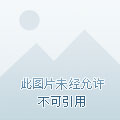Following the State Council's announcement of the Decision on Optimizing Fertility Policies to Promote long-term balanced development of the population on July 20, the topic of #three children has been repeatedly searched.
Now it is not only the three sisters and six wives in the family who urge marriage, but also the experts and scholars of all walks of life and even the whole society have joined the camp of marriage and childbearing, and various theoretical policy suggestions have flown together.
Marriage and childbearing seem to have jumped out of the category of personal choice and become an answer sheet, a responsibility, and a mission to society.

Image source: NetEase News
When urging marriage and childbearing, the topic that will always be mentioned is "the best age for women to have children".
Women are urged to marry as soon as they graduate, or even before graduation, which is essentially the anxiety of society that women miss the "best age for childbearing".
Many experts believe that the best age for women to conceive is 23-30 years old, and men are 26-35 years old, at this time individual development is mature, hormones and other physiological conditions are relatively stable, more suitable for pregnancy and childbirth.
In November 2021, the National Health Commission issued the "Core Information on Health Education on the Prevention and Treatment of Infertility", which also mentioned: "Age is a key factor affecting fertility, and marriage and childbearing at the right age are more likely to conceive." Fertility shows a downward trend in women after the age of 30, declines rapidly after the age of 35, and fertility begins to decline after the age of 40 in men. ”
The medical community generally believes that the reproductive clock is irreversible and will turn faster and faster.
The risk of embryonic chromosomal abnormalities (e.g., Down syndrome) increases significantly in advanced maternal age (35 years of age of delivery and above), which can easily lead to adverse outcomes such as embryonic cessation of development or spontaneous abortion.
In addition, with the aging of the pelvic floor structure and bone and joints, the tissue flexibility of advanced women will become worse, the elasticity of the cervix, uterus and perineum will decrease, and the contractility of muscle groups will be insufficient, and the chance of dystocia will also increase.
With the decline of metabolism and endocrine regulation, advanced women are more likely to have high blood pressure and diabetes during pregnancy.
Image source: Dr. Lilac
In addition, prenatal and postnatal depression caused by hormonal changes, sleep deprivation caused by taking care of newborns and frequent night milk feedings are also a great consumption of mothers.
The decline in physical energy caused by age will make elderly mothers more tired of coping with this hard work.
In this way, the reference to "the best age for women to have children" is supported by sufficient theoretical data and seems to be reasonable.
But the so-called "optimal age for childbearing" is only the "best" in medical data.
Pregnancy and childbirth have never been more than just a medical problem.
Most women in their early 20s have not yet left campus and are preparing to take risks and explore the world, and should not be immediately tied to the "motherhood".
Becoming a mother not only means childbearing, but also means nurturing, which requires a solid economic foundation, stable family relations, ample time and full psychological preparation.
For young women in their 20s, it all takes time to build and polish the business.
In addition, for women, the choice of childbearing is often accompanied by a series of problems such as the stagnation or even termination of career development, a decrease in self-identity, and a decrease in social participation.
For example, researchers compared data from the China Health and Nutrition Survey over the past 26 years and found that the average wage growth rate of mothers was 1.6% lower than that of non-mothers.
There are also data showing that every additional child born results in a reduction in women's wages by about 13 percent.
Therefore, many women will also choose to consider childbearing after accumulating certain social resources.
Medical data is only a reference, but life often needs to be chewed by ourselves.
Marriage, childbearing, the hard part, the tired part, the bitter part, often need to deal with it alone.
Because of this, in addition to medical data, we should also interpret our own "unique data".
Are you financially ready? Mentally ready? Is the marriage stable? Can partners actively participate in parenting? Are career plans in place after childbirth?
Only when these things are clearly thought out, that is our own "optimal age for childbearing".
Expectant mothers are on the road to pregnancy, full of risks.
For the health of yourself and your baby, in addition to preconception examination, prenatal diagnosis, and regular obstetric examinations, it is best to prepare a pregnancy protection product for yourself.